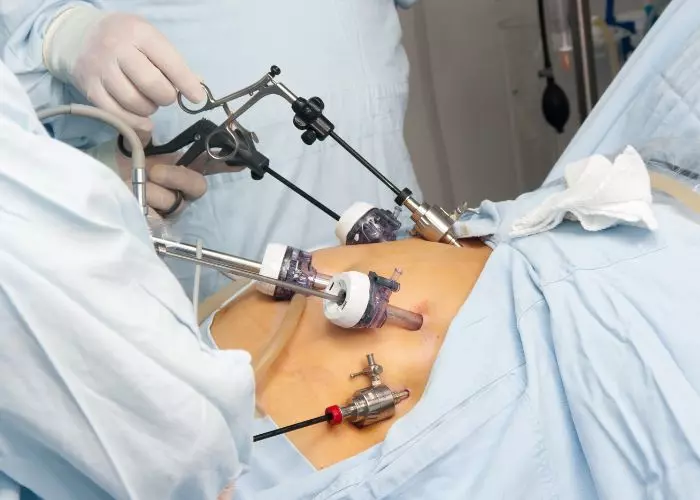When Do You Stop Losing Weight After Gastric Bypass? Gastric bypass surgery is a life-changing procedure that helps individuals struggling with obesity achieve significant weight loss. However, many patients wonder about the duration of weight loss after undergoing this surgery.
Understanding the timeline for weight loss can be crucial for managing expectations and maintaining a healthy lifestyle. In this article, we will explore the question, “When do you stop losing weight after gastric bypass?” and provide insights into the factors that influence weight loss outcomes.

Initial Rapid Weight Loss
Before knowing the answer to “When Do You Stop Losing Weight After Gastric Bypass“, after gastric bypass surgery, patients typically experience rapid weight loss in the first few months. This initial phase is characterized by substantial reductions in weight as the body adjusts to the changes in the digestive system.
During this time, the restricted stomach size and rerouted intestines lead to reduced food intake and malabsorption of calories. Most patients can expect to lose a significant portion of their excess weight during this period, which provides motivation and sets the stage for long-term success.

When Do You Stop Losing Weight After Gastric Bypass: Stabilization and Slower Progress
Following the initial phase, weight loss tends to stabilize, and the pace of progress slows down in a good speed. This is because the body adapts to the changes brought about by the surgery, and the rate of calorie expenditure may decrease.
Patients may notice that the number on the scale becomes more consistent, with smaller weekly or monthly weight loss. To continue progressing, it becomes essential to focus on lifestyle modifications such as portion control, or regular exercise, and mindful eating.
Plateaus and Adjustments
After a good period of stabilization, some patients may experience weight loss plateaus. These plateaus occur when the body reaches a point where the calorie intake matches the calorie expenditure, and this results in a temporary halt in weight loss.
Plateaus can be frustrating, but they are a normal part of the weight loss journey. To overcome plateaus, patients may need to reassess their diet, increase physical activity, modify exercise routines, or consult with their healthcare provider for additional guidance and support.

Long-Term Weight Maintenance
While the pace of weight loss may slow down over time, patients who have undergone gastric bypass surgery can expect to continue losing weight for up to 12-18 months post-surgery. However, it’s important to note that individual results may vary. The key to long-term success lies in achieving weight maintenance.
This involves adopting healthy habits that promote a balanced lifestyle, including regular exercise, mindful eating, adequate protein intake, vitamin and mineral supplementation, and ongoing medical supervision. By making sustainable lifestyle changes, individuals can maintain their weight loss and improve overall health and well-being.

Factors Affecting Weight Loss
Several factors influence weight loss outcomes after gastric bypass surgery. These include the patient’s starting weight, age, gender, metabolic rate, adherence to dietary guidelines, physical activity levels, and overall health. Each person’s weight loss journey is unique, and it is essential to have realistic expectations.
Some individuals may experience faster or slower weight loss based on these factors. Regular follow up appointments with the healthcare team can help monitor progress, make necessary adjustments, and provide the necessary support and guidance throughout the weight loss journey.
Frequently Asked Questions
Is gastric bypass surgery a quick fix for weight loss?
No, gastric bypass surgery is not a quick fix for weight loss. While patients may experience rapid weight loss in the first few months after surgery, it requires long-term commitment to lifestyle changes, including diet and exercise, to achieve sustainable weight loss.
Can patients continue to lose weight after the first few months following gastric bypass surgery?
Yes, patients can continue to lose weight for up to 12 to 18 months post-gastric bypass surgery. While the pace of weight loss may slow down over time, adopting healthy habits and maintaining a balanced lifestyle can contribute to ongoing weight loss and long-term success.
What factors influence weight loss outcomes after gastric bypass surgery?
Several factors can influence weight loss outcomes after gastric bypass surgery, including starting weight, age, gender, metabolic rate, adherence to dietary guidelines, physical activity levels, and overall health. Each person’s weight loss journey is unique, and working closely with healthcare professionals is important to optimize outcomes based on individual circumstances.
Can gastric bypass surgery be performed on anyone who wants to lose weight?
No, gastric bypass surgery is typically recommended for individuals with a body mass index of 40 or higher, or those with a BMI of 35-39.9 with obesity-related health conditions. The decision to undergo surgery is based on a thorough evaluation of the patient’s overall health and suitability for the procedure.
Are there any potential risks or complications associated with gastric bypass surgery?
Like any surgical procedure, gastric bypass surgery carries potential risks and complications. These can include infection, bleeding, blood clots, nutritional deficiencies, and complications related to anesthesia. It is important for patients to discuss these risks with their healthcare provider and make an informed decision.
Conclusión
Weight loss after gastric bypass surgery is typically most significant in the first few months, followed by a stabilization phase and slower progress. While the pace of weight loss may vary, patients can continue to lose weight for up to 12 to 18 months post-surgery.
Remember, individual results may vary, and it is crucial to work closely with healthcare professionals to achieve and sustain successful weight loss outcomes. By embracing a holistic approach to health and making lasting changes, individuals can experience improved quality of life and long-term weight management.






















